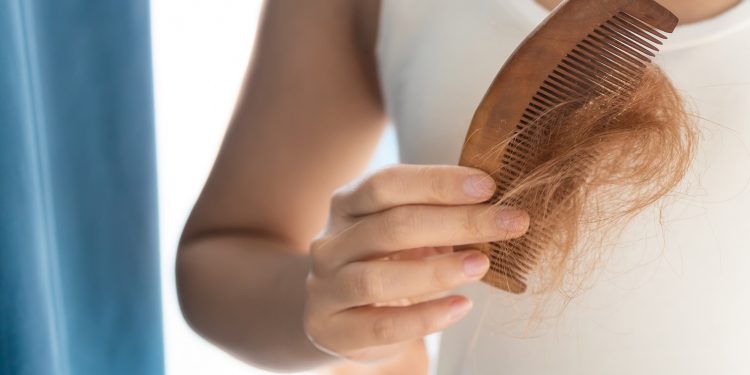Disorders of the Hair
Our hair is not only a physical feature but also a significant part of our identity and self-expression. It plays a vital role in shaping our appearance and can influence our confidence and well-being. However, like any other part of our body, our hair is susceptible to various disorders that can affect its health, growth, and overall condition.
Hair disorders encompass a wide range of conditions that can manifest in different ways, from excessive hair loss to scalp conditions and abnormalities in hair growth patterns. Understanding these disorders, their causes, and available treatments is essential for both individuals affected by them and healthcare professionals involved in their care.
Types of Hair Disorders
- Alopecia Areata: This autoimmune condition causes patchy hair loss on the scalp and sometimes other parts of the body. It occurs when the immune system mistakenly attacks the hair follicles.
- Androgenetic Alopecia: Commonly known as male or female pattern baldness, this genetic condition results in gradual hair thinning and loss. It is more prevalent in men, but women can also be affected.
- Telogen Effluvium: This temporary hair loss condition occurs when a large number of hair follicles enter the resting phase (telogen) prematurely. It can be triggered by physical or emotional stress, hormonal changes, nutritional deficiencies, or certain medications.
- Traction Alopecia: This condition arises from excessive pulling or tension on the hair, commonly caused by tight hairstyles like braids, ponytails, or extensions. Over time, it can lead to hair breakage and permanent hair loss.
- Trichotillomania: Considered a hair-pulling disorder, trichotillomania involves an irresistible urge to pull out one’s hair, often resulting in noticeable hair loss. It is often related to underlying emotional or psychological issues.
- Scalp Psoriasis: Psoriasis is a chronic autoimmune condition that affects the skin, including the scalp. It leads to the formation of red, scaly patches, and can cause itching, inflammation, and temporary hair loss.
- Seborrheic Dermatitis: This common scalp condition is characterized by red, itchy, and flaky patches. It can cause dandruff and, in severe cases, lead to hair loss if left untreated.
- Hirsutism: Hirsutism refers to excessive hair growth in women in areas typically associated with male hair patterns, such as the face, chest, or back. It is often caused by hormonal imbalances, such as polycystic ovary syndrome (PCOS).
- Folliculitis: This condition occurs when hair follicles become inflamed and infected, leading to the development of small, painful bumps on the scalp. It can result from bacterial or fungal infections.
- Nutritional Deficiencies: Inadequate intake or absorption of essential nutrients, such as iron, zinc, biotin, or vitamins, can impact hair health, leading to thinning, brittleness, and slow hair growth.
Causes of Hair Disorder
Hair disorders can have various causes, including genetic factors, hormonal imbalances, medical conditions, lifestyle choices, and external influences. Here are some common causes of hair disorders:
- Genetic Factors: Many hair disorders have a genetic component, meaning they can be inherited from one or both parents. Conditions like androgenetic alopecia (pattern baldness) and certain types of alopecia areata are influenced by genetic predisposition.
- Hormonal Imbalances: Hormones play a significant role in hair growth and health. Hormonal imbalances, such as those occurring during puberty, pregnancy, menopause, or conditions like polycystic ovary syndrome (PCOS), can disrupt the normal hair growth cycle and lead to hair loss or excessive hair growth in unwanted areas.
- Autoimmune Disorders: Some hair disorders, like alopecia areata, are caused by autoimmune responses where the immune system mistakenly attacks the hair follicles. Other autoimmune conditions, such as lupus or thyroid disorders, can also contribute to hair loss or changes in hair growth patterns.
- Medical Conditions: Certain medical conditions can cause hair disorders. Examples include scalp conditions like psoriasis, seborrheic dermatitis, or fungal infections, which can lead to scalp inflammation, itching, and hair loss. Chronic illnesses, nutritional deficiencies, and hormonal disorders can also affect hair health.
- Trauma or Damage: Physical trauma, such as burns, scars, or injuries to the scalp, can damage the hair follicles and disrupt hair growth. Excessive heat styling, chemical treatments, and tight hairstyles (like braids or ponytails) can cause hair breakage, traction alopecia, or hair follicle inflammation.
- Medications and Treatments: Some medications and medical treatments can have side effects that affect hair health. Chemotherapy and radiation therapy, for example, can lead to temporary or permanent hair loss. Certain medications used to treat conditions like cancer, arthritis, depression, and high blood pressure may also cause hair loss as a side effect.
- Stress and Emotional Factors: Emotional and psychological stress can impact hair health. Significant emotional distress, trauma, or prolonged periods of stress can disrupt the hair growth cycle, leading to increased shedding or slower hair growth.
- Environmental Factors: Environmental factors such as pollution, exposure to harsh chemicals, UV radiation, and excessive sun exposure can damage the hair shaft and contribute to hair disorders.
- Nutritional Deficiencies: Inadequate intake of essential nutrients like vitamins, minerals (such as iron and zinc), and protein can affect hair health. Nutritional deficiencies can lead to hair thinning, brittle hair, and slower hair growth.
Hair disorders can have a significant impact on individuals, affecting not only their physical appearance but also their emotional well-being and self-confidence. Understanding the different types of hair disorders, their causes, and available treatments is crucial in addressing these issues and promoting healthy hair.
From conditions like alopecia areata and androgenetic alopecia to scalp conditions such as psoriasis and seborrheic dermatitis, each hair disorder presents its own challenges and treatment approaches. Some disorders may be genetic, while others may result from autoimmune issues, hormonal imbalances, or external factors like styling practices or nutritional deficiencies.
Additionally, raising awareness about hair disorders is crucial in reducing the stigma associated with them and fostering a supportive environment for those affected. By understanding the challenges individuals face and offering empathy and support, we can help create a society that embraces diversity in hair types and styles.
References - https://www.mountsinai.org/health-library/condition/hair-disorders











Discussion about this post